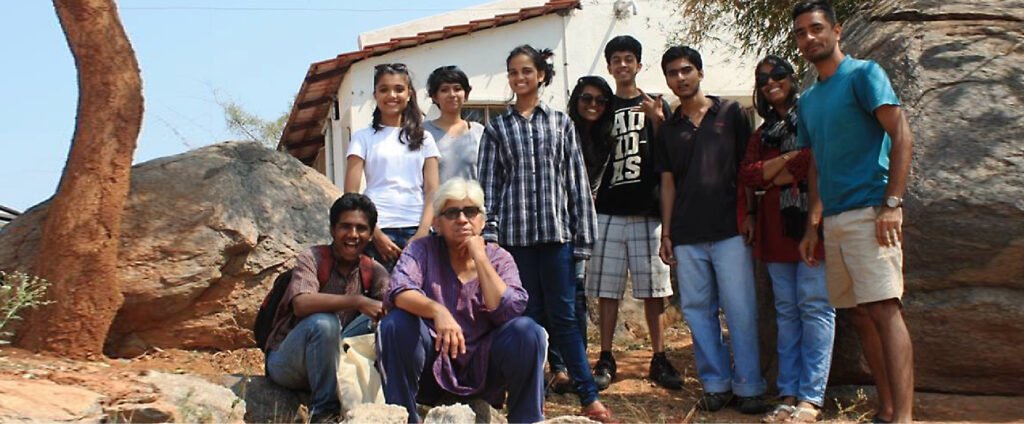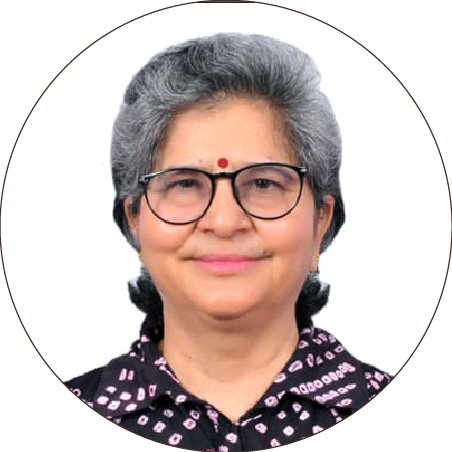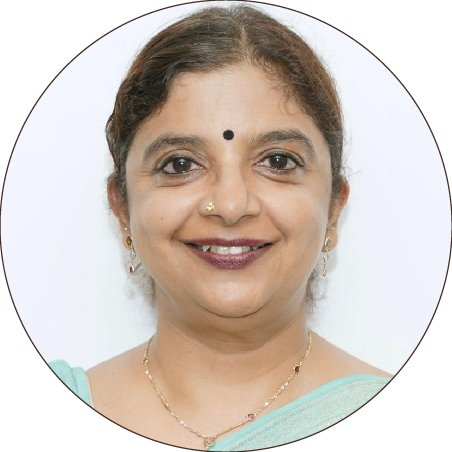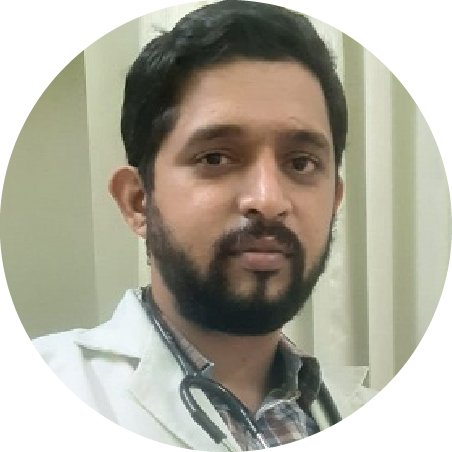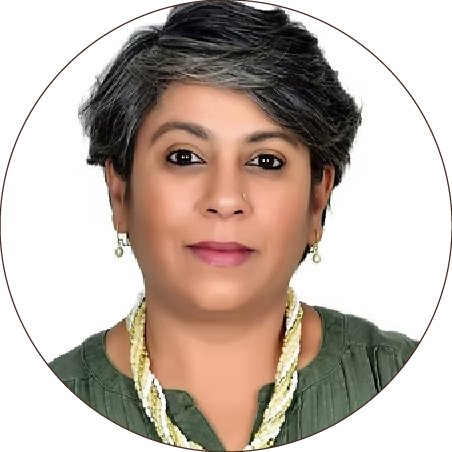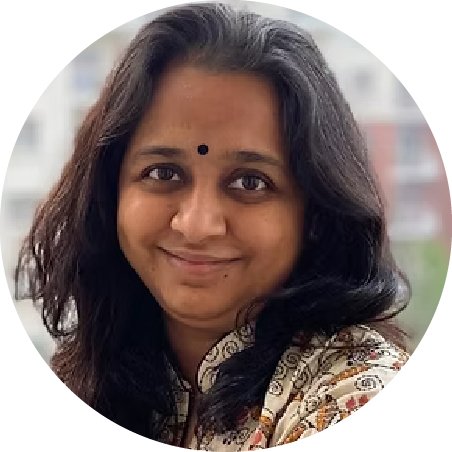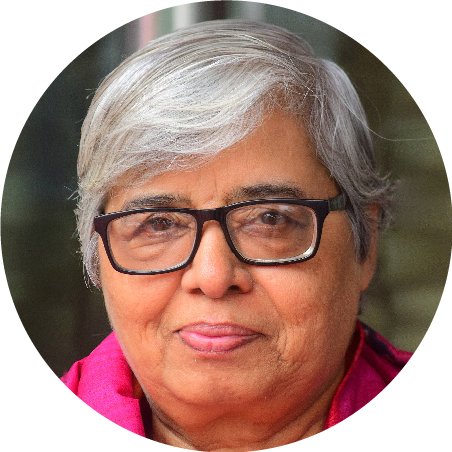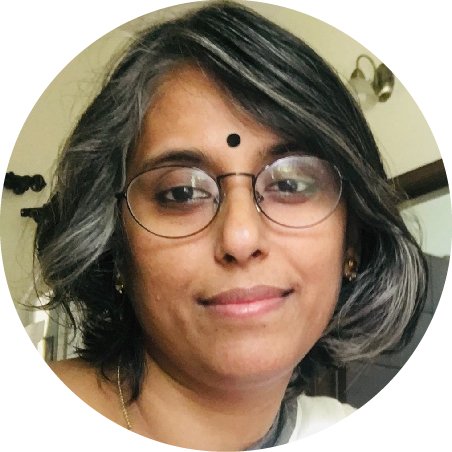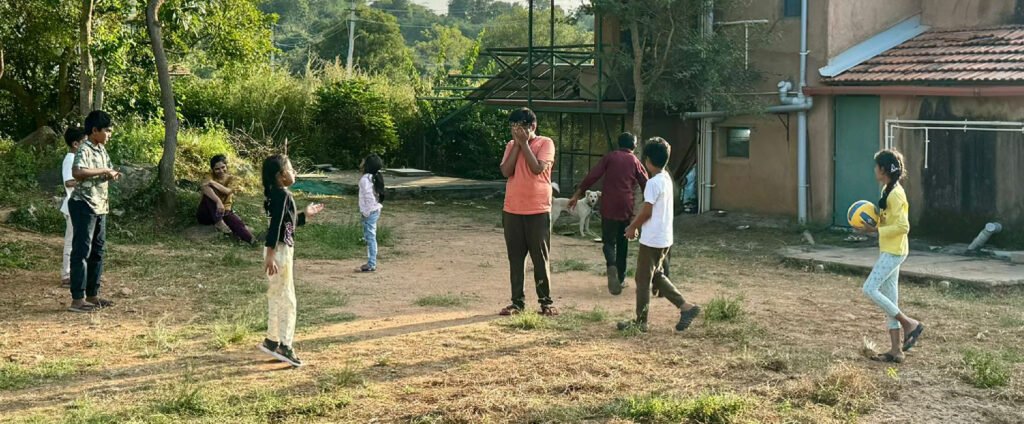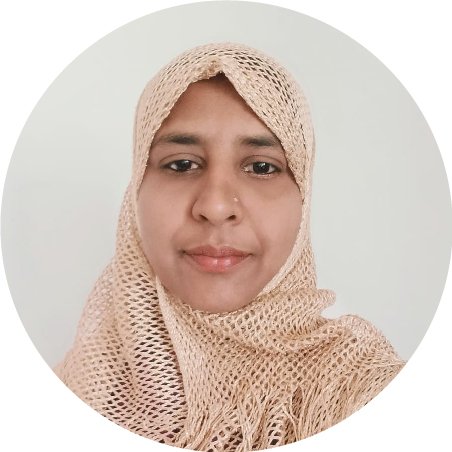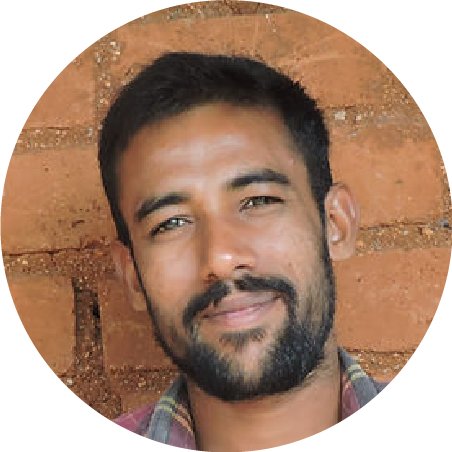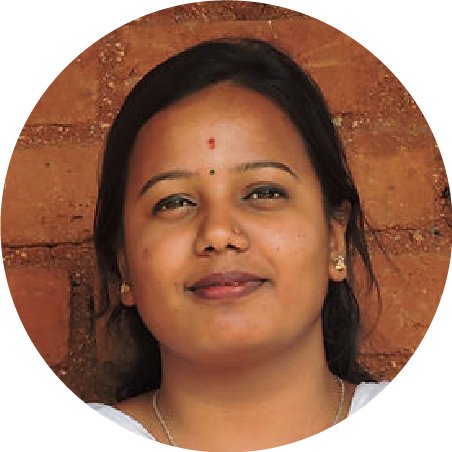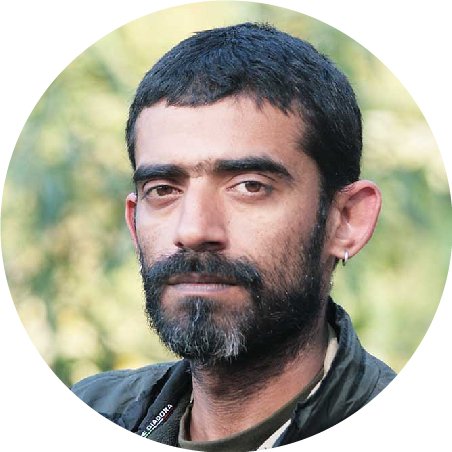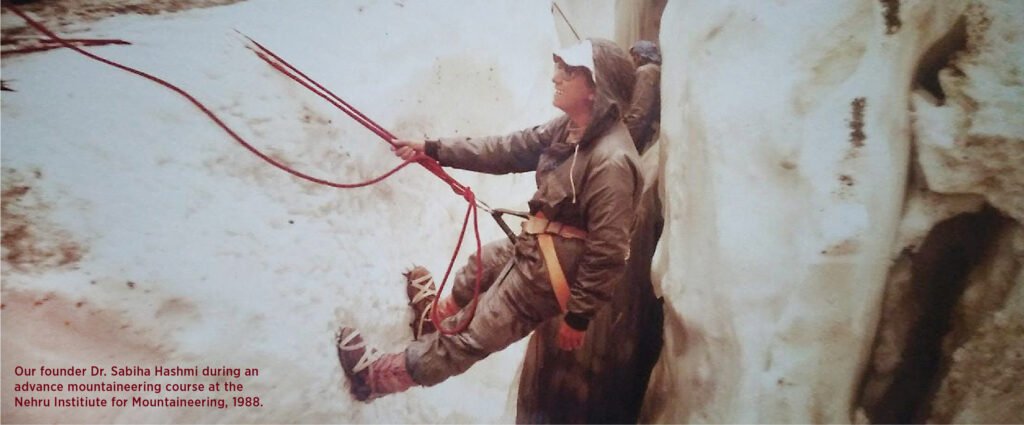
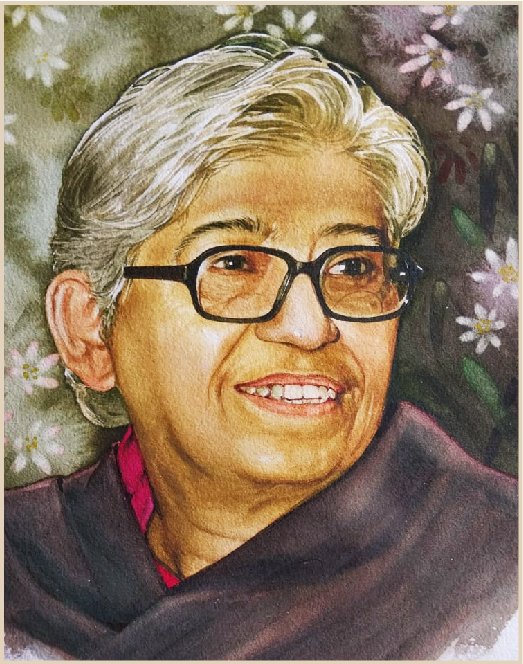
Dr. Sabiha Hashmi, a graduate of Fine Arts from Delhi College of Arts, MA in History of Arts and a PhD from the National Museum Institute of the History of Art, Conservation and Museology (on Dunhuang Cave Paintings), was an art educator for over 40 years. She introduced thousands of young children to the world of colours, sketching, painting, printing, art history and aesthetics.
Post-retirement, she decided to spend her time supporting the education of young girls in a small village in Karnataka. She bought a piece of land near Magadi, built a cottage and moved there. Soon, the village children started calling her Ajji, an endearing term for ‘grandmom’ in Kannada, the local language, and her land, now converted into a farm, became Ajji’s Farm.
After working in her individual capacity for 8 years, Sabiha realized the need for a more organized approach. She saw the vacuum that needed to be filled. The children and youth in Jyothiplaya and nearby villages needed access to books, a reading room, training in modern technology like computer literacy and more opportunities to spend time in creative activities.
Putting her experience as an art educator to use, she designed learning modules to encourage story writing, painting, sketching, wood block printing, collage making, stitching and tailoring, recycling waste fabric and cardboard cartons to create useful items such as pen holders and organisers not just for children but rural women too, as a source of additional income. A fierce advocate of women’s empowerment and an educator who adopted an unconventional approach to learning and teaching.
She lived by the proverb “Give a man a fish, and you feed him for a day. Teach a man to fish, and you feed him for a lifetime“. She believed that teaching self-sufficiency through skills and knowledge was more beneficial than mere temporary aid or assistance. That knowledge is not from books alone. Knowledge has to be gained by doing, so that one could earn a livelihood from it. To her, learning had to be hands-on. One had to learn a skill, keep at it to get proficient, and thereby benefit and earn from it. Sabiha believed that all learning is learning for life. This became the core tenet and foundation of Ajji’s Learning Centre.
She emphasized the need to focus on the welfare of underprivileged children from dysfunctional families and single mothers in particular. She hoped to motivate them to become more financially independent and thereby mitigate potential chances of exploitation and abuse. Built on the philosophy of simple, creative and compassionate living, the centre has emerged as a space where local youth can upskill and train themselves for better livelihood and job opportunities through its various courses and collaborative activities. Exactly a month after the inauguration of Ajji’s Learning Centre, Sabiha passed away on April 5, 2022. Yet, her legacy is being carried forward by her committed team of trustees and well-wishers.
